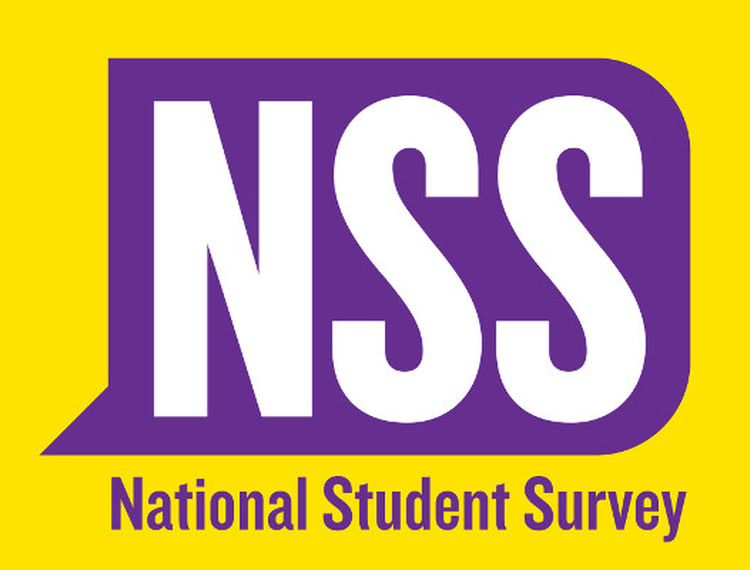Student satisfaction stable as data continues to highlight need for clear communication

#NSS2020 – The results of the @OfficeStudents 2020 National Student Survey
Responding to this year’s National Student Survey (NSS), published today (15 Jul), 83 per cent of the 311,432 UK students are satisfied with the quality of their course – marginally down from 84 per cent last year. However, students have continued to report comparatively lower rates of satisfaction with how their courses are organised and how effectively changes are communicated by their university or college.
This year’s NSS was open to students from 6 January 2020 to 30 April 2020 – overlapping with the outbreak of coronavirus (COVID-19) and the UK entering ‘lockdown’. Additional analysis, also published today, shows that while there were some variations across the data compared to previous surveys, there was no evidence that the results have been significantly impacted by the pandemic.
For example, this year 75 per cent of full-time students in England agreed that changes in the course or teaching have been communicated effectively. While this is down from 77 per cent in 2019, this change cannot be clearly attributed to the pandemic, with similar variations observed in previous years.
Additionally, for full-time students in England:
- 67 per cent agreed that the course is well organised and running smoothly
- 62 per cent agreed that it was clear how students’ feedback on the course had been acted on.
These questions have typically had lower agreement rates in recent years and will be particularly important areas for students as universities adapt the delivery of courses as the recovery from the coronavirus pandemic continues. In 2019, 70 per cent of students agreed that their course was well organised and running smoothly – in 2018 the agreement rate was 69 per cent.
 Nicola Dandridge, chief executive of the Office for Students, said:
Nicola Dandridge, chief executive of the Office for Students, said:
‘This academic year has come with unprecedented challenges for both universities and colleges, and their students. Notwithstanding the impact of both industrial action and the coronavirus pandemic on the students responding to the survey, the results remain remarkably positive.
‘However, for several years, students have reported comparatively lower satisfaction with the organisation and management of their courses, and how effectively changes are communicated. Now more than ever, the survey results demonstrate how important it is for universities to communicate changes effectively, run courses as smoothly as possible, and listen carefully to student feedback. This is even more important in the context of the coronavirus pandemic – hence the guidance that we recently published stating that students should be given timely information about how the delivery of their courses will change next year.’
 Alistair Jarvis, Chief Executive of Universities UK, said:
Alistair Jarvis, Chief Executive of Universities UK, said:
“We are extremely proud of our students and of the news that satisfaction levels remain high across the UK. Universities and their staff work extremely hard to make sure students benefit from every aspect of their higher education and these latest results reflect their efforts.
“In challenging times, students have shown themselves to be resilient, dedicated and adaptable. Students recognise the quality of the experience on offer and those starting at or returning to university this autumn can be confident that UK universities will be delivering high-quality and rewarding courses to help students fulfil their potential.”
 Imperial’s Vice-Provost (Education) Professor Simone Buitendijk said:
Imperial’s Vice-Provost (Education) Professor Simone Buitendijk said:
“Our students have expressed good levels of satisfaction with their experience at the College, but we are ambitious to provide them the very best experience and we know there is more work to do. We are listening, taking action, and continuing to invest in order to build upon the many improvements of recent years.
“Academic Year 2019-20 has featured an unsettling amount of upheaval for our entire community. While the disruption has undoubtedly influenced this Survey result in many ways, final year students were encouraged to consider the positives and negatives of their experience across the entirety of their programme. Therefore, we know that part of this result is due to the College successfully removing some of the barriers to student satisfaction, while needing to continue our work on others.”
“In recent years we have focussed as a community ondelivering improvements in four key areas: culture, learning and teaching, space, and wellbeing. Since the last Survey took place this has included consulting students on their views on our substantial programme of classroom and lab renovations. We have also worked hard with Departments to ensure every student receives high-quality feedback for their assessments throughout the academic year.
“We will carefully consider this feedback and make sustained investment in improving our teaching, on-campus facilities, and digital provision. In these extraordinary times our assumptions about what ‘works’ in a university setting are being challenged in ways we could never have imagined. We must take this opportunity to pause, reflect, and work in partnership with students to focus on building a sense of community and belonging, as well as supporting and promoting student wellbeing.
“With continued momentum we know we can achieve lasting change.”
The OfS, in agreement with all UK funding and regulatory bodies, committed to continue the survey through this period and analyse any impact the pandemic had on the results.
This analysis has been published today. In summary:
- 21.2 per cent of student responses came after 11 March 2020, when the World Health Organization (WHO) declared the coronavirus outbreak a pandemic.
- The UK final response rate for 2020 was 68.6 per cent, which compares with 71.9 per cent in 2019 and 70.1 per cent in 2018. It is hard to determine the extent to which the slight drop in response rates is due to the pandemic: the accumulation of responses in 2020 slowed after 11 March compared with 2019, but not compared with 2018.
- The OfS used a statistical model to determine whether there is a significant difference between responses made before and after the 11 March (an ’11 March effect’) when other factors are taken into account. The model found that there is a difference for the majority of questions, but similar variations are also present in 2018 and 2019, so cannot be attributed solely to the pandemic.
- Overall, when comparing the 2019 results to 2020, there is a small negative shift in the agreement rate for some questions. However, similar shifts have also been observed in previous years.
In other areas of the survey, students reported lower rates of satisfaction with the assessment and feedback on their courses compared to other areas covered by the survey, however this comes in the context of consistent improvements in recent years. In 2008, 64 per cent of students agreed that marking and assessment was fair and that they received helpful comments. Among full-time students in England this year, 72 per cent agreed that the criteria used in marking was clear. Furthermore, 72 per cent agreed that marking and assessment was fair and said that they had received timely feedback on their work.
There are also notable differences in responses between full-time and part-time students. For example, only 49 per cent of part-time students in England agreed that their feedback had been acted on by staff – 13 percentage points behind their full-time peers. Just 58 per cent of part-time students agreed that they felt a part of a community of students, compared to 69 per cent of full-time students.
The NSS is the biggest survey of student’s views in the UK which, this year, captured the views of over 311,432 students. This year, 68.6 per cent of eligible students from 396 universities, colleges and private providers took part.
The data will be published on the Discover Uni website later this year, providing valuable evidence to inform potential students’ choices about where and what to study.
The NSS covers mainly final-year undergraduates studying for higher education qualifications at UK higher education providers and at further education colleges in England, Northern Ireland and Wales. The survey is funded by the four UK higher education regulatory/funding bodies (the Office for Students, the Scottish Funding Council, the Higher Education Funding Council for Wales and the Department for Economy Northern Ireland), and Health Education England.
This year we published an Insight brief on the NSS: it explores the themes of consistency, controversy and change that have characterised the survey.











Responses